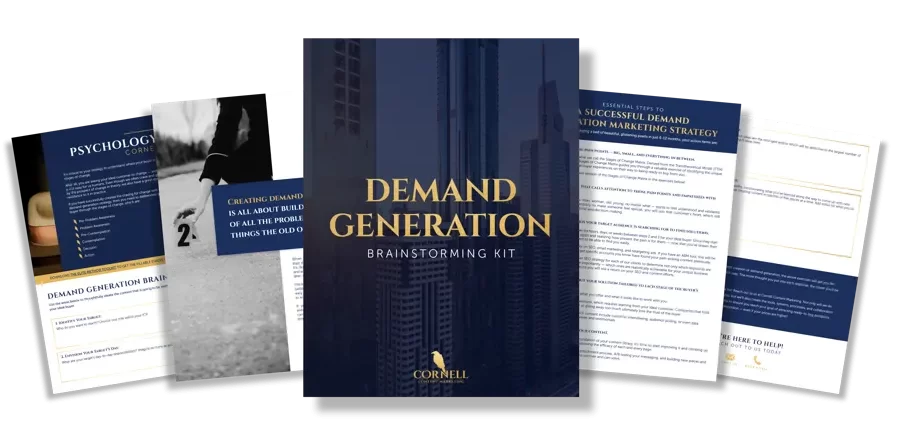What do you do when your first career path is steeped in regret? What do you do when you’re saddled with the burden of student loans that are fundamentally fruitless in the path you ultimately ended up on? What do you do when you want to move forward but feel uncomfortable (perhaps even embarrassed) when people ask about your educational background?
Career pivots and mid-life entrepreneurship are on the rise – particularly following our long, COVID-enduced “sit and home and rethink everything about your life” stint. If you’re one of the many professionals whose educational background and early resume bits don’t match your current expertise and professional aspirations, I’ve got you covered.
Here’s how you can take your unhung diplomas – or any other professional “do-overs” in your past – and turn them into fuel to be the vanguard for your industry.
Hitting a Dead End
In 2014, I sat in a room across from a man who was coming down off meth. As a triage specialist at a local mental hospital, it was my job to complete his intake form and initial assessment… even though he wasn’t coherent enough to answer my questions, let alone recognize that there was another human being sitting in the room with him.
As I watched the time tick by and checked in with him periodically to see if he gave any indication of being capable of conversing yet, I thought, “How did I end up here?”
As a child, I was great at school. My natural inclination toward self-discipline, hyper-organization, and over-achievement mingled with my parents’ very traditional expectations for what a “successful life” looked like. Raised by two adults who were police officers by day and dysfunctional parents in a miserable, angry marriage by night, I was set on a path to being a mental health professional in the criminal justice system.
Yet, when I wasn’t burying my nose in books and competitively earning as many academic credits as I could to graduate high school at 16 and accelerate my escape route, I was obsessed with writing, foreign languages, and the nuances of words.
After earning a Bachelor’s degree in Psychology, a Master’s degree in Professional Clinical Counseling and Marriage and Family Therapy, and a Master’s degree in Criminology, plus completing professional stints at San Diego drug rehab facilities, community counseling centers, and a mental hospital in Texas, my parents’ vision for my future had run its course.
I hit a dead end on the path others had carved for me.
Surviving Without a Roadmap
When I first left home at the age of 16, I needed a way to pay for… well, life! Being a soccer referee and a Starbucks barista wasn’t cutting it, so I put my natural talent for writing to work for me.
Everyone has a “thing.” For some, painting stunning nature scenes comes to them effortlessly. For others, it’s music. For me, it was writing. What took my fellow students hours or days to craft to ultimately earn a B or C grade took me an hour tops to earn an A. Writing was my saving grace — both in school and as a survival tool.
I started out writing papers for my fellow classmates before ultimately turning to Google with, “How to make a living as a writer.” I learned about this thing called “freelancing” and immediately applied to as many content mills and job boards as I could.
Eventually, I burned out on content mills and learned that I could earn more — and have a much easier time — working directly with businesses. I landed my first direct freelance writing gigs doing SEO blogging for roofing companies, car dealerships, and anything I could get my hands on.
It wasn’t thrilling work, but it was easy, plentiful, and served as a financial safety net as well as an escape from the mental health profession I was growing to despise.
Redefining Success
By the time Mr. Meth Man was ready to talk, I was emotionally checked out. I finished his intake form, left the room, and resigned. Walking out of that mental hospital, I felt freer than I ever had. I’d finally given a voice to the little rebel inside of me who’d been telling me for years that I was on the wrong path — the one I ignored for the sake of doing things “the right way,” which really meant “the people-pleasing way.”
I threw myself full-time into the side hustle that had been my financial and creative respite for nearly a decade. Now, it would be my sole focus. I would be a professional writer.
For two years, I toiled away in the digital world of the internet, building my portfolio, my website, and my name as a content creator. All the while, I only ever spoke to my clients about my writing background, citing my lifelong passion for words and my countless samples of everything from “How to Winter-Proof Your Roof” to “Soak Up Some Sun to Lower Your Risk of Rheumatoid Arthritis.”
It wasn’t until a potential client asked me over the phone, “So do you have a degree in Business or Marketing?” that I accidentally pulled the curtain back on my shameful first career.
“Uh… Well, no,” I stumbled, cheeks burning red. “Actually, my degrees are in Psychology and Criminology. But I’ve been writing for over 10 years and…”
I was ashamed. I was embarrassed. And I felt like a fraud.
That is until my soon-to-be client cut me off and said, “Really? That’s fascinating! I think there’s so much overlap between psychology and marketing. I think we could really use someone with your background.”
Suddenly, all the weight of the baggage of my degrees and failed first career fell from my shoulders. I sat up taller in my chair. My voice became clearer and bolder. And my heart leaped at the idea of no longer having to hide my academic past like a secret crime I never wanted anyone to discover on my record.
Claiming the Thought Leadership Responsibility
Now, in 2025, not only do I run a successful full-service content marketing agency with a stellar reputation for quality content, copy, and creative marketing assets, but also I’m known as the leading expert in psychology-infused marketing.
When someone asks me about my background, I still mention that I’ve been writing professionally since I was 16 years old, but I lead with the fact that I hold three degrees in psychology and human behavior. Before I even touch on my marketing experience and the incredible brands I’ve been fortunate to write and strategize for, I explain where it all started: with a fascination for psychology, a knack for forging long-lasting relationships, and a passion for making people feel good.
I’ve become a maverick in the marketing industry. I’ve taken ideas and sentiments that feel very personal to me and made them public to start a movement.
Anytime I see a company using fear tactics, manipulation, or deception in their marketing and advertising, I bristle, dig my heels in deeper, and commit to changing the way this industry communicates with the humans on the other end.
Despite the fact that I’m a marketing professional, I’ve taken up a lot of issues with the marketing industry. Anytime I see a company using fear tactics, manipulation, or deception in their marketing and advertising, I bristle, dig my heels in deeper, and commit to changing the way this industry communicates with the humans on the other end.
Today, I work with companies that are committed to building long-lasting, healthy, feel-good relationships with their ideal clients and customers, rather than getting distracted by the short-lived, reputation-ruining success of campaigns built on manipulation that leave a sour taste in consumers’ mouths forever.
In every course I teach, service my agency provides, and strategy session I do with my consulting clients, I’m reshaping the way marketing has always been done into something I can be proud of, companies can be successful with, and consumers can enjoy.
Be a True Thought Leader
In recent years, I’ve met dozens of men and women who have similar stories to my own: They set out on a particular path because they thought it was the career they wanted (or, really, it was the career they thought would make their parents proud or their life financially secure), only to find that their passion — and ultimately their greatest success — was elsewhere.
If you find yourself in a similar situation — where you feel embarrassed to admit that your degrees and lengthy work history have (seemingly) nothing to do with what you do now — I invite you to refresh your own self-narrative through the lens of someone outside looking in.
Being a thought leader isn’t magic or rocket science or only for a “select few.” Being a thought leader is an inner process of transformation that manifests into a legacy you leave for the world to grow and benefit from.
Here’s how you can become a thought leader in your own field of expertise:
- Mindset Shift: Be Unapologetic. Before you can successfully own your story, you have to decide that you’re done being afraid of people finding out, you’re done with feeling ashamed, and you’re done apologizing (to yourself and anyone else!) for the decisions you’ve made in the past that led you here.
- Perspective Shift: Be Unbiased & Curious. Set your identity aside for a moment and look at yourself on paper. If someone came across your timeline, what would they see? What would intrigue them? What would catch their eye? For me, it was actually my psychology background, which I tried so hard to hide but was ultimately the fascination factor that brought clients in closer. Now isn’t the time to be modest. What in your history makes people lean in closer?
- Energy Shift: Be Passionate. Oftentimes the things we start out with in life are the things we’re most passionate about. But once we get into the higher education system and the world of traditional employment — and become a cog in the machine — we realize that our daily lives are devoid of the thing we were once passionate about. Well, it’s time to re-empassion yourself! Get back to what truly lights you up and energizes you, and delegate everything else.
- Role Shift: Be a Teacher. So many of us were taught to make a “decent living” by being a doer. But when you have something truly valuable to share with the world, you can have more of an impact by being a teacher and a thought leader than by doing the actual execution of the work. This takes a shift and may require you to go through some growing pains to overcome imposter syndrome. But the more you speak up about what you’re passionate about, the more minds you’ll open and the more change you’ll effect.
Being a thought leader isn’t just about forging a path that others can follow. It’s about forging a path that you can be proud of.
I couldn’t be proud of contributing to the revolving door of the red-tape-strapped mental health world. I couldn’t be proud of setting aside human connection for the sake of medications and protocols. I couldn’t be proud of being a cog in an emotionless machine.
Now, I know I’m transforming my thought leadership into real change and industry-wide evolution because I can be proud of reshaping an industry that touches nearly every human on Earth in some way.
I can be proud of teaching communication methods and marketing tactics that make others feel good. And I can be proud of helping great companies do even more good in the world by building loyal, happy audiences and customer bases.
What can you be proud to leave behind? What revolution will you lead?



